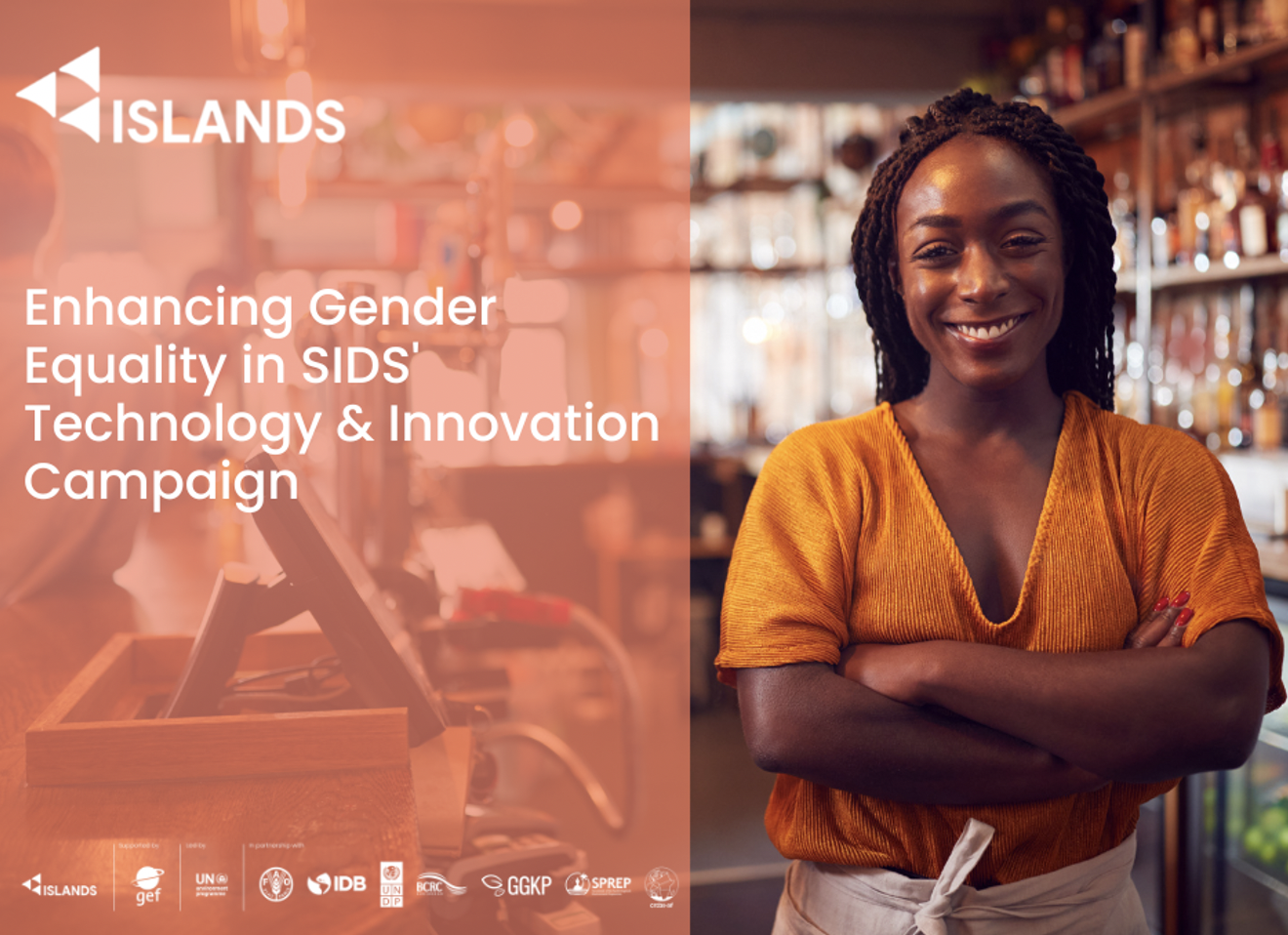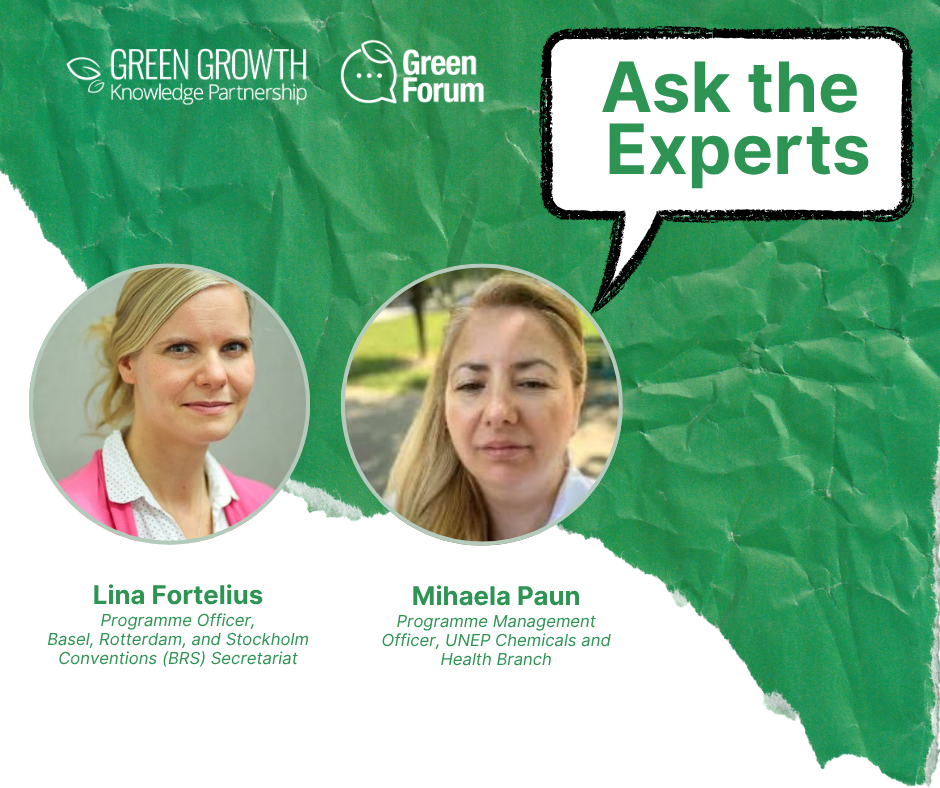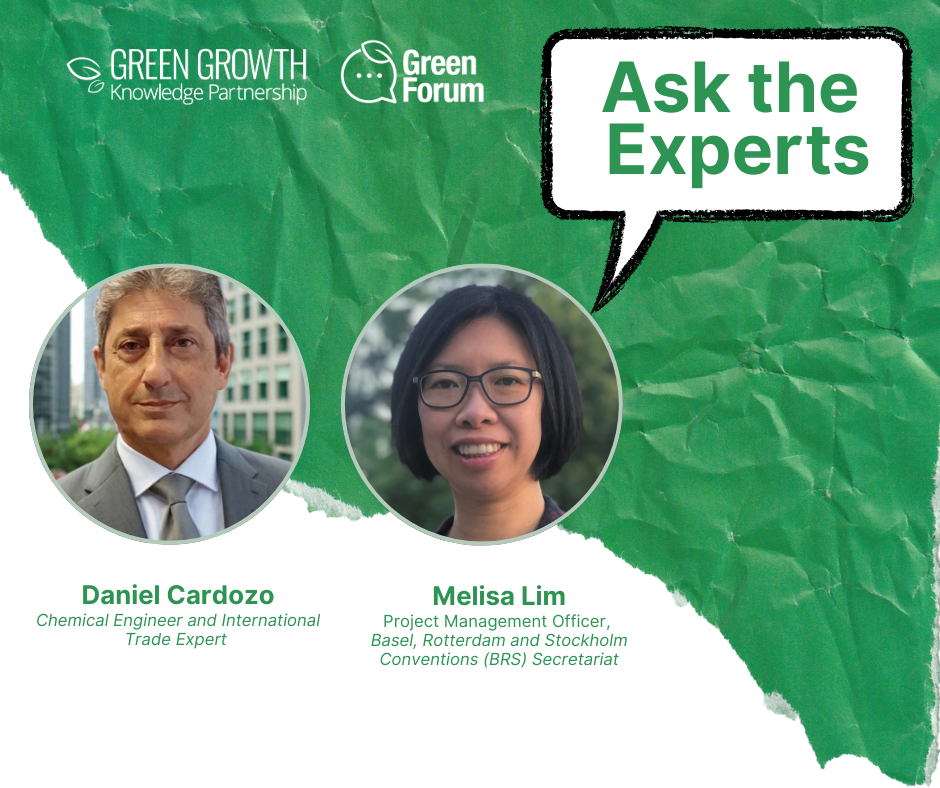Enhancing Gender Equality in SIDS’ Technology & Innovation
For international Women’s Month, the ISLANDS Programme is launching a campaign to spotlight women’s and girls’ leadership—as well as persistent challenges—in technology and innovative opportunities in relation to the sound and sustainable management of chemicals and waste in SIDS.
Women and girls play a vital role as agents of change for sustainable development, including in the sound management of hazardous chemicals and waste. Progress toward all of the UN’s Sustainable Development Goals (SDGs), however, demands gender equality as well as full and effective participation and empowerment of women and girls, including in technology and innovation. But while this is essential, and despite gender and technological innovation being prioritized on the global agenda, the pace of digital transformation has been unequal and the gender gap at all levels persists in science and technology.

Entrenched systemic barriers in policies and access to finance, together with gender norms and gendered perceptions of technology, perpetuate women’s and girls' limited access and skills-development, which can leave them less equipped to leverage the digital and technical innovation transformation.
The GEF-funded Implementing Sustainable Low and Non-Chemical Development in Small Island States (ISLANDS) Programme is advancing innovation and technology to identify, design, and share solutions for a circular economy and support a just transition towards the sound management of chemicals and waste. As part of this, ISLANDS is implementing a gender-transformative approach to advance gender equality, designing pathways for more inclusive participation, decision-making, empowerment, and leadership of women and girls across 33 small island states around the world.
In ISLANDS, we are conscious of the digital divide: from information and communication technology connections in SIDS; between urban and remote island communities; and gender inequalities. In fact, despite reductions in access-related inequalities as people everywhere come online, significant barriers and inequalities persist:
- The International Telecommunication Union reports that only 61% of individuals in SIDS accessed the internet in 2021.
- Women and girls access the internet and possess mobile phones at lower rates than men and boys, often due to factors such as awareness, affordability, and digital literacy.
- Youth connections are higher than for the general population, including in SIDS.
- In SIDS, large discrepancies exist between the percentage of individuals using internet in urban areas (77%), compared to rural communities (32%).
- Women users remain more likely to utilize the internet for social and communicative purposes rather than “productive” or economic purposes.
- Technology-facilitated gender-based violence poses a serious threat to women and girls with significant physical, sexual, psychological, social, political, and economic harm and infringement of their rights and freedoms. This is particularly felt by those facing intersecting forms of discrimination, and those in public life. Research shows that women tend to restrict their engagement online for fear of cyber-aggression, sexualised cyberbullying, gossip and hateful comments.
Generally, there is still a dearth of gender-disaggregated data on these topics globally, and more so in SIDS regions. Collecting and sharing data is an essential prerequisite to set gender transformative policy and planning goals.
While gaps are real and barriers exist, so too do examples of innovation and leadership which are pushing the needle toward more equality. Women are developing new ways of recycling plastics into construction materials, for example, addressing plastic pollution while developing green building materials; art, science, technology, and education are coming together to expand livelihood opportunities for women in tourist-focused communities; digital platforms and mobile communications have facilitated reporting of gender-based violence and intimate partner violence, and improved accessibility of support systems.
These examples are just the tip of what is happening and can be strengthened by breaking down barriers to women’s and girls' education, participation, decision-making, and focus on accelerating the shifting of discriminatory norms and behaviour. ISLANDS is working toward this, embarking on the journey to host digital spaces, engage youth and remote communities through digital education tools and participatory data collection, as well as promoting collaboration for women and girls with role models across science, technology, and ICT fields.

This year, the 67th Commission on the Status of Women (CSW) will prioritize the theme: Innovation and technological change, and education in the digital age for achieving gender equality and the empowerment of all women and girls. This will provide a much-needed space for discussion, negotiation and collaboration to ensure women and girls are at the center of a just digital transformation in all sectors.
Aligning with the CSW theme and Women’s Month in March, ISLANDS is powering the ‘Enhancing Gender Equality in SIDS’ Technology & Innovation’ campaign. It is with the utmost joy and respect of the visionary leadership and diverse challenges that we aim to provide engaging opportunities to enhance understanding, access, and knowledge sharing on these key issues. You can stay abreast of our campaign by joining the ISLANDS Gender Equality Community on the Green Forum.
- We will spotlight inspiring women who are agents of change from the Bahamas, to Fiji, and beyond, using innovative tools, technology, and local knowledge to protect and enhance their rights and well-being as women, islanders, and leaders.
- We will raise awareness on gendered issues in technology and innovation in the digital age through community-led and participatory learning circles.
- We hope to spark conversations and motivate girls and women to seek opportunities in diverse technology and digital fields—inviting experts to share experiences and pathways into careers.
- We have issued a Call to Action, to crowdsource and highlight leaders in your community (or you!)—go and check it out! And we will develop feature videos of these women and girls sharing their solutions as they take charge for sustainable management.
- Throughout the campaign on our Gender Equality ISLANDS Community, we will be sharing relevant resources and articles, creating space for discussions, and asking questions with you.
Join us and share your experiences! Help us crowd-source data and evidence, and learn with us as we build literal and digital bridges for closing the gender gap in technology and innovation.
It is time for us to recognize that achieving the sustainable development agenda requires more resources and action, community participation and collaboration with gender-transformative approaches in all fields. Together we can harness the potential of technology and innovation to improve women’s and girls’ lives and ensure a safer society and environment for all.
------------------
About ISLANDS
The Implementing Sustainable Low and Non-Chemical Development in Small Island Developing States (ISLANDS) Programme is a $515-million, five-year initiative backed by the Global Environment Facility (providing $61 million), supporting 33 Small Island Developing States in four regions - the Atlantic, Caribbean, Indian and Pacific Ocean to reduce and manage toxic waste in their territories. ISLANDS is led by the United Nations Environment Programme, in cooperation with the United Nations Development Programme, Food and Agriculture Organization of the United Nations, and the Inter-American Development Bank.



